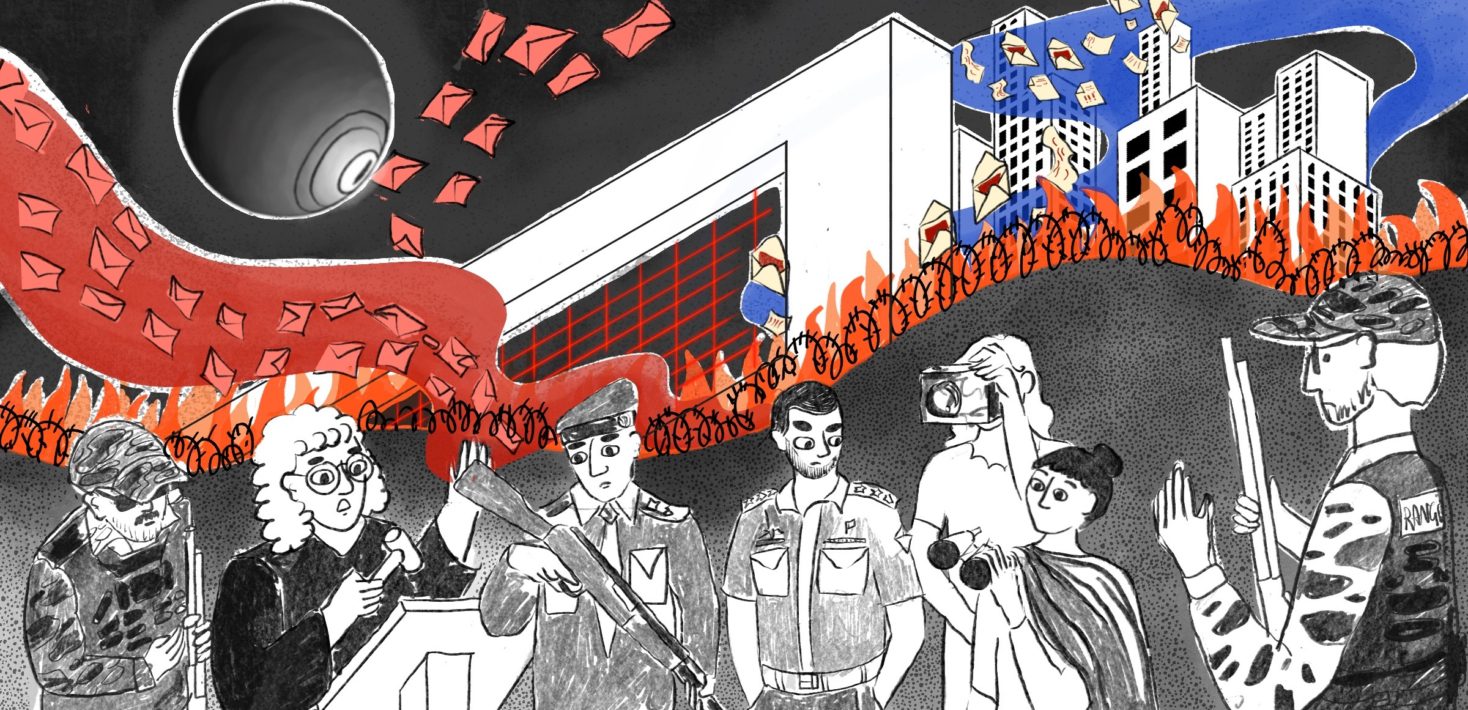AMNESTY INTERNATIONAL

Pakistan’s unlawful mass surveillance and censorship expansion is powered by a nexus of companies based in Germany, France, United Arab Emirates (UAE), China, Canada, and the United States, Amnesty International said today in a new report “Shadows of Control”. The year-long investigation was carried out in collaboration with Paper Trail Media, DER STANDARD, Follow the Money, The Globe and Mail, Justice For Myanmar, InterSecLab and the Tor Project.
The investigation exposes how Pakistani authorities have obtained technology from foreign companies, through a covert global supply chain of sophisticated surveillance and censorship tools, particularly the new firewall (the Web Monitoring System [WMS 2.0]) and a Lawful Intercept Management System (LIMS). The report documents how the WMS firewall has evolved over time, initially using technology supplied by Canadian company Sandvine (now AppLogic Networks). Following Sandvine’s divestment in 2023, new technology from China-based Geedge Networks, utilising hardware and software components supplied by Niagara Networks from the U.S. and Thales from France, were used to create a new version of the firewall. The Lawful Intercept Management System (LIMS) uses technology from the German company, Utimaco, through an Emirati company called Datafusion.
“Pakistan’s Web Monitoring System and Lawful Intercept Management System operate like watchtowers, constantly snooping on the lives of ordinary citizens. In Pakistan, your texts, emails, calls and internet access are all under scrutiny. But people have no idea of this constant surveillance, and it’s incredible reach. This dystopian reality is extremely dangerous because it operates in the shadow, severely restricting freedom of expression and access to information,” said Agnès Callamard, Secretary General at Amnesty International.
“Pakistan’s mass surveillance and censorship have been made possible through the collusion of a large number of corporate actors operating in as diverse jurisdictions as France, Germany, Canada, China and the UAE. This is nothing short of a vast and profitable economy of oppression, enabled by companies and States failing to uphold their obligations under international law.
Pakistan’s Web Monitoring System and Lawful Intercept Management System operate like watchtowers, constantly snooping on the lives of ordinary citizens.
Agnès Callamard, Secretary General at Amnesty International.
“There are human rights limitations to the search for profit in markets, but these have all been ignored. Pakistani people are paying the highest price.”
WMS 2.0 can block both internet access and specific content, with virtually no transparency.
LIMS is mandated by the Pakistan Telecommunications Authority (PTA) to be installed across telecommunications networks, by private companies, allowing the Armed Forces and the Inter-Services Intelligence (ISI) to tap into and access consumer data, such as phone calls, text messages, and even which websites people visit.
“LIMS and WMS 2.0 are funded by public money, enabled by foreign tech, and used to silence dissent, causing severe human rights harms against the Pakistani people,” said Jurre van Bergen, Technologist at Amnesty International.
While both technologies enable mass surveillance by harvesting vast amounts of personal data or allowing the authorities to zoom in on someone’s browser habits, the WMS 2.0 also allows authorities to block VPNs or any website deemed to be “unlawful” content by the authorities.
A murky system of surveillance operating in shadows
Concerns around unlawful surveillance and online censorship in Pakistan are longstanding. Under an oppressive political landscape, the country’s legal system offers no real protection against mass surveillance. Domestic laws lack safeguards and those that exist, such as warrant requirements under the Fair Trial Act, are often ignored, while authorities acquire ever more sophisticated surveillance and censorship tools from foreign companies. The purchase of these sophisticated technologies has amplified the country’s capacity to silence dissent, including by targeting journalists, civil society and the public.
A journalist interviewed for the report told Amnesty International he believed he was under constant surveillance, which has forced him towards self-censorship.
“Obviously, everything is monitored, be it email or calls.” He outlined that after publishing a story on corruption, he came under severe surveillance that affected him and those around them. “After the story, anyone I would speak to, even on WhatsApp, would come under scrutiny. [The authorities] would go to people and ask them, why did he call you? [The authorities] can go to these extreme lengths… now I go months without speaking to my family [for fear they will be targeted],” the journalist said.
Amnesty International for more
